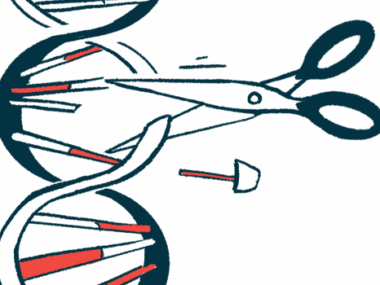Foundation event shares lastest on ASO treatment for rare diseases
N-Lorem's second annual patient forum draws 750 from over 20 countries
Written by |

At its second annual event this fall, the N-Lorem Foundation detailed the latest developments related to antisense oligonucleotide (ASO) treatment for people with extremely rare diseases — those affecting just one to 30 people worldwide. Patients and families also shared experiences from their diagnosis and treatment journeys.
The Nano-rare Patient Colloquium 2024 took place over two days in Cambridge, Massachusetts, with participation by about 750 people, including scientists, healthcare providers, and industry partners. Taking part both in-person and virtually, the attendees hailed from across the U.S. and more than 20 countries worldwide.
“This is the second year of our colloquium and, while the first year was incredibly successful, [this] year was even better than we could have predicted with overwhelming positive responses from participants and attendees,” Stanley T. Crooke, MD, PhD, N-Lorem Foundation’s founder, chairman, and CEO, said in a press release.
The N-Lorem Foundation has been developing personalized ASOs to treat patients with extremely rare diseases, providing such treatment for free, and for life.
ASO therapies can be tailored to target specific genetic mutations and change the activity of a specific gene of interest in people with rare and ultra-rare diseases, including aromatic l-amino acid decarboxylase (AADC) deficiency.
AADC deficiency is caused by mutations in the DDC gene that result in the production of too little AADC enzyme and/or a faulty version of the enzyme. That enzyme is needed for the production of several molecules that nerve cells use to communicate, so defects in this enzyme lead to neurological problems. The condition is extremely rare, with fewer than 350 cases ever reported globally.
Nonprofit has started over 20 rare diseases patients on ASO treatment
ASOs are lab-made RNA or DNA molecules that are designed to bind to specific messenger RNA (mRNA) molecules — the intermediate molecules derived from DNA that cells use as a template for protein production.
ASO treatment can be used to correct the function of a gene, either by increasing or reducing protein production, or by ensuring that a functional protein is produced through a cellular process called splicing. Splicing is the process through which noncoding parts of a gene are removed, and the coding regions are joined in a specific way to create an mRNA that will then be translated into a protein.
To date, N-Lorem has evaluated more than 300 applications for treatment and has accepted 140 patients. More than 20 patients have already received ASO treatment, and at least 20 investigational new drug applications seeking the therapies’ approvals have been submitted. The organization also expects more patients to begin treatment in the coming year.
Patients [on ASO therapies] are experiencing remarkable positive changes in multiple domains, such as walking, putting on their shoes and recovery of emotional and behavioral attributes.
“This year, we shared encouraging positive data on a number of patients who have been on treatment for a year or more, and early clinical data on patients who began treatment this year. These patients are experiencing remarkable positive changes in multiple domains, such as walking, putting on their shoes and recovery of emotional and behavioral attributes,” Crooke said.
In the colloquium, hosted by Biogen, researchers and healthcare providers shared insights into the latest developments on neurological diseases, while more than 175 patients with ultra-rare diseases and their families shared their journeys into diagnosis and treatments. Industry affiliates and partners also attended the event.
“Today, our only barrier to providing treatments to more nano-rare patients is funding,” Crooke said. “I urge organizations and individuals to support our mission and help us discover, develop and provide the most optimal ASO medicines we can for even more nano-rare patients.”
All presentations and panel discussions can be viewed at N-Lorem’s website.






